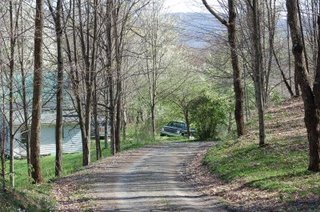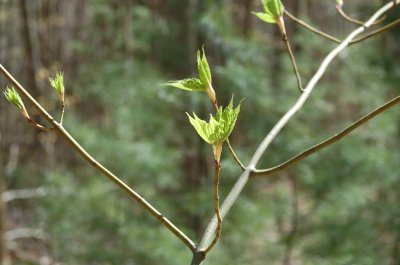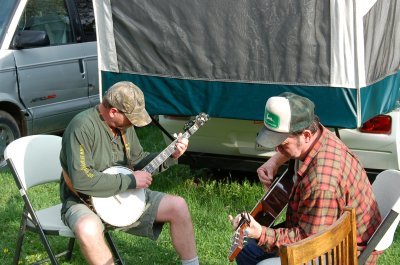I've been spending too much time with computers for the last week, none of it involving blog entries. When I quit my genomics job back in 1999, I vowed that I would never again spend 12-hour days at the computer. Well, except once in a while. Last weekend, I determined that I would update my Debian Linux machines. This turned into an obsessive activity much like last winter's quilting project.
My beloved home Linux machine (purchased new in 1998) has been running Debian Sarge (testing), installed early in 2005. Ever since the Debian folks moved Sarge to stable status, I've been unable to update any programs. It always comes down to some sort of problem with the kernel I'm using, or perhaps the xserver program. The new testing version, Etch, uses a 2.6 kernel and Xorg. Last Sunday, I went to the GED classroom and downloaded the latest Etch installation iso's. (The first three, anyway; it took about four hours.) This was probably my last chance to use the school system's broadband connection, so no more large downloads any time soon.
I couldn't get my USB external hard drive mounted on the Linux box in the classroom, because it's formatted as Unix File System, for use with my eMac. Strange as it seems, it's only simple to mount vfat external hard drives on Linux boxes. Rather than spend all night in the classroom, I carried home the computer, connected it to my LAN, and ftp'd the Etch iso's to my Mac, which sports a CD-burner. I burned the CD's and began to install Etch from scratch on the borrowed computer. Unfortunately, the i386 beta2 installer has an insurmountable problem: the new, groovey autopartitioner doesn't work, and there is no way to manually partition the hard drive once you begin the installation process. I spent some time on LinuxQuestions, and was disappointed to find the level of discourse has gone downhill in the last six months. When an online community grows quickly, it seems inevitable that the signal to noise ratio drops, and LinuxQuestions now has a fair number of people posting unhelpful responses.
I found one helpful suggestion: Install Debian stable, then move over to Etch. I spent several days working on this, and eventually decided it wasn't really worth the trouble. It took two nights to download the netinstall iso for Debian stable over my dialup connection, and doing a netinstall over dialup would tie up my phoneline for days. Using the Sarge netinstall iso followed by the Etch iso's seemed promising, and I even got Gnome 2.12 to load and work for a while, but after I restarted the computer, my xserver gave me lots of bogus error messages. Reconfiguring Xorg didn't help; it seems I would need to upgrade the kernel and get a different version of Xorg. I decided I would just postpone any kind of major upgrade on my main machine.
I enabled successful Net updates of individual programs by editing my /etc/apt/sources.list file, substituting "stable" for every occurence of "testing."
Meanwhile, I had messed up the Debian machine I'd borrowed. To get it back in shape before returning it, I thought I'd test Debian Stable using the 2.6 kernel. This turned out to cause problems with the Xfree86 xserver. I wasn't able to configure a left-handed mouse, or get sound to work properly.
So, after all those hours of work, I changed three words in a file on my home machine, and reinstalled the old version of Debian Sarge off the CD's I bought last year. Worthwhile? I hope so. I learned something, I fixed my main problem, and I found out I know more about Linux than some self-styled "experts."




